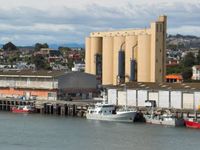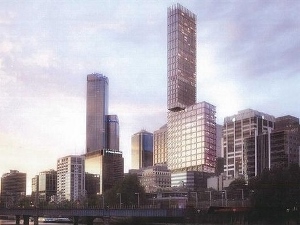Tourism Australia director slated by Airbnb over “conflicts of interest”
Airbnb is urging Tourism Australia to take action against one of its board directors over his sustained public criticism of the short-let platform.
Bradley Woods, the West Australian head of the Australian Hotels Association, has been a vocal advocate for regulation of a sector he has previously described as a “disease” within the local accommodation industry.
According to Airbnb, his attendance at the Reformbnb conference in New York last month, a forum on how to regulate the short-let industry worldwide, raises questions about a potential conflict of interest with his board position at Tourism Australia.
Brent Thomas, Airbnb’s head of public policy for Australia, says Tourism Australia board members have a duty to avoid actual or perceived conflicts, in line with government stipulations and the public service code of conduct.
And he argues Mr Woods’ attendance at an event dubbed the world’s first anti-Airbnb gathering conflicts with his directorship of a government body responsible for attracting overseas visitors.
Thomas told the Australian Financial Review: “The global gathering of big international hotel lobbyists lays bare their real agenda: to eliminate competition and protect their members’ interests.
“This lobby only cares about what is best for big international hotels, not what is best for families, communities and the Australian tourism industry.
“The involvement of the AHAWA in such an anti-home sharing and anti-tourism event raises fresh questions about potential conflicts of interest.”
Mr Woods rejected Airbnb’s comments, saying: “Tourism Australia has clear practices and procedures in place to address conflicts of interest and these are strictly adhered to.
“Having represented the tourism and hospitality industry around Australia for over 25 years, I reject Airbnb’s personal attacks and efforts to degrade my professionalism as completely baseless.”
He is the architect of a five-point plan, currently before a WA parliamentary inquiry into the short-let sector, which proposes limiting properties listed on sharing platforms to a host’s primary residence and banning the listing of whole properties for stays of fewer than 14 days.
The approach is tougher than any currently in place in NSW and Victoria and according to Thomas, would have “devastating consequences for the local community and small businesses”.
“Under their extreme plan approximately 95 percent of trips on Airbnb in Western Australia would be banned,” he said.
“It would cost local tourism more than half a million guest arrivals and more than $111.3 million a year in Airbnb guest spending.”
A spokesperson for Tourism Australia said the organisation had no involvement with Mr Woods’ attendance at the New York conference.
“Tourism Australia has a board charter which addresses conflicts of interest,” she said.
“All board members are required to declare any interests and conflicts are actively managed by the board.”

AccomNews is not affiliated with any government agency, body or political party. We are an independently owned, family-operated magazine.








This would be a disaster for many small towns across Australia if Mr Woods had his way. There are an immense number of tourists who simply can’t find hotel accommodation to suit their needs when holidaying around our beautiful country. Many regions have specific tourism events that are seasonal – think Toowoomba Flower Festival in Qld or the Bright Spring Festival in Victoria as a couple of easy examples. Without the short stay accommodation offered by home owners and holiday home investors, these festival would be a financial disaster as there is simply nowhere in close proximity for visitors to stay.
This is a clear case of BE CAREFUL WHAT YOU WISH FOR! Trying to dig your heels in to get a win on one hand will cause a major disaster on the other! Do not be reckless by ignoring the bigger picture on this occasion
Let’s us use analogies that have been argued since Airbnb started to bypass regulatory and compliance protocols nearly a decade ago by starting with Flying, whereby the safety and maintenance standards allows you to feel comfortable when flying; when using a hotel the operator guarantees that the building complies with hygiene, fire and life safety standards, complies with building regulations and that the hotel is in a safe and well-maintained condition. This argument applies also with regulated Taxi companies, whereby Uber’s criteria is that the vehicle has to be less than 10 years old, maintenance, servicing processes are left to the owner driver. The sticking point, compliance and regulatory issues are open to interpretation.
Now with Airbnb, there is no guarantees that the building/house in which your room or apartment is located complies with any standards. That argument is never clearly addressed by Airbnb and consumers generally do not know that they are booking a product without clear and obvious hygiene, fire and life safety standards. Now the tax applications is also questionable and in most cases who is the go to person when things are not right. Getting a response can be trying and reliability on consumers feedback is also open to interpretation but the key points such as hygiene, fire safety, escape protocols tend to be disregarded.
The argument that tourist numbers are affected if the option of Airbnb is not available doesn’t wash. Level playing field operators will absorb demand and if Airbnb can address the Five Point Plan put forward by the AHA WA, then perhaps the compromise will work……NHI
Adding to the more measured comments of NHI, the one-off festivals & events in areas spoken of byRed, where a totality of Hôtel inventory demand might be under-serviced for such one-off events, are in no way threatened by the regulatory care that Mr.Woods is suggesting to better protect the safety and value of visitors experience.
Brent Thomas is disingenuous by suggesting such an impact and obscuring the fact that more of the ‘full time availability’ of most Airbnb experiences around the world no longer present face to face opportunities with local hosts for a superior informed visit experience over that which can be provided by a full service regulated & better informed hotel experience. There is no evidence that Airbnb has done more than encourage more sensible long term investment and employment opportunities for more of the families of the many communities they serve.